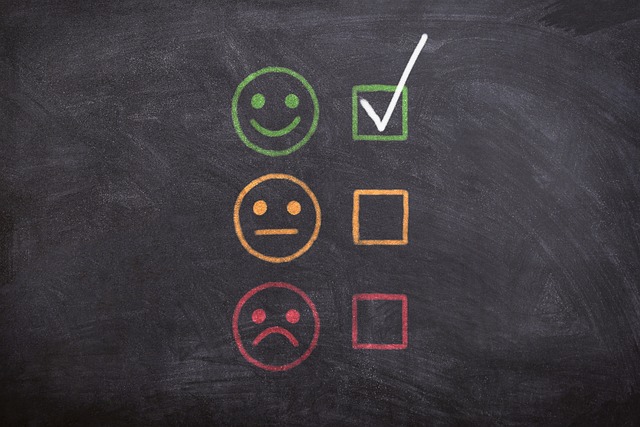The Role of Personal Growth in Maintaining Work-Life Balance
In today’s fast-paced world, achieving work-life balance has emerged as a fundamental concern for professionals across various fields. Personal growth plays a pivotal role in this equation. When individuals actively invest in their personal development, they equip themselves with the tools necessary to navigate the complexities of both their professional and personal lives. The essence of personal growth lies in understanding oneself better, honing skills, and bolstering emotional intelligence. This understanding ultimately enhances one’s approach to balancing work and life commitments efficiently.
Personal growth encompasses a broad spectrum of activities and experiences that help individuals realize their potential. It varies from setting ambitious goals to overcoming personal challenges. Whether through self-reflection, reading books, attending workshops, or engaging in mentorships, the journey of self-improvement fosters resilience. This resilience is crucial in managing the stresses associated with work. When a person commits to this journey, they become more adept at setting boundaries, managing time effectively, and prioritizing well-being. Consequently, greater emotional and mental clarity leads to an improved work-life balance.
Moreover, the connection between personal growth and work-life balance becomes evident in decision-making. Individuals who prioritize their development often make calculated choices that reflect their values and goals. A strong self-awareness derived from personal growth allows for a thoughtful analysis of the demands placed upon them. For example, an entrepreneur might face numerous pressures, but those who engage in personal development typically approach these challenges with a balanced perspective. This balance empowers them to pursue their professional aspirations without sacrificing their health or personal lives.
Building Emotional Intelligence through Personal Growth
One of the essential components of personal growth is the enhancement of emotional intelligence (EI). EI refers to the ability to identify, understand, and manage one’s emotions while also recognizing and influencing the emotions of others. Cultivating emotional intelligence can significantly impact work-life balance. When individuals possess a high level of EI, they can navigate workplace challenges with poise and empathy, leading to stronger professional relationships. Effective communication emerges as a natural byproduct, helping to foster collaboration within teams.
Furthermore, emotional intelligence promotes self-regulation. This skill allows professionals to manage stress effectively, ensuring that workplace pressures do not spill over into their personal lives. Imagine an entrepreneur who faces tight deadlines. If they lack emotional intelligence, stress may cloud their judgment, leading to burnout and frustration both at work and home. Conversely, those with a developed EI can implement coping strategies, such as mindfulness and relaxation techniques. These strategies not only enhance their productivity but also safeguard their personal time and energy.
One often overlooked aspect of emotional intelligence involves its role in conflict resolution. In businesses, disputes can arise, whether among employees or between managers and team members. An individual with high EI can approach conflicts with empathy and understanding, looking to resolve the issue amicably. This competency is fundamental in creating a workplace culture that values harmony and cooperation. When workplaces prioritize understanding and collaboration, it significantly eases the burden on employees and contributes to overall satisfaction and a better work-life balance.
The Importance of Goal Setting in Personal Growth
Goal setting is a cornerstone of personal growth. It provides direction and purpose, allowing individuals to chart a path toward success. When people set goals, they inherently prioritize their time and efforts. In a professional context, this prioritization is vital. For instance, an entrepreneur with a clear roadmap is less likely to succumb to distractions or take on commitments that detract from their mission. Establishing specific, measurable, achievable, relevant, and time-bound (SMART) goals encourages accountability and keeps individuals focused on what truly matters.
Moreover, goal setting fosters a sense of achievement. As individuals reach their milestones, they gain confidence, reinforcing their commitment to both their professional and personal lives. This boosts morale, allowing them to tackle both domains with vigor. It’s easy to see how entrepreneurs, who frequently juggle multiple responsibilities, can become overwhelmed without clear goals. Those who embrace structured goal setting often find that they eliminate unnecessary stressors and create a balanced lifestyle. They achieve success not just in their careers but also in their personal lives, fostering a holistic sense of fulfillment.
One powerful strategy in goal setting relates to time management. When individuals define their objectives, they can break them down into actionable tasks. This practice ensures that time is allocated judiciously, making it easier to maintain boundaries between work and personal life. For instance, someone might set a goal to limit work hours to ensure time for family. By actively dictating their schedule, they affirm their commitment to balance. This ongoing process of refining goals and examining priorities enables continual personal growth and reinforces healthy boundaries.
Embracing Resilience through Personal Development
Resilience is another crucial element intertwined with personal growth and work-life balance. The world of entrepreneurship is often unpredictable, marked by challenges that can disrupt one’s equilibrium. Resilient individuals tend to bounce back from setbacks, maintaining their focus and determination. This trait can be nurtured through personal development activities such as learning coping strategies, seeking mentorship, or engaging in self-care practices. Resilience empowers entrepreneurs to manage stress effectively, transforming potential crises into opportunities for growth.
When someone embraces resilience, they also cultivate a growth mindset. This mindset is centered on the belief that abilities and intelligence can be developed with effort and learning. In a work environment that requires constant adaptation, possessing a growth mindset allows individuals to view failures as learning experiences rather than insurmountable obstacles. As they encounter challenges, they become more adept at maintaining balance. Instead of becoming overwhelmed by setbacks, they view each challenge as a stepping stone toward achieving their goals, both personally and professionally.
Additionally, fostering resilience requires building a supportive network. Entrepreneurs who engage with a community of like-minded individuals or seek guidance from mentors can share their experiences and learn from one another. This exchange of ideas can serve as a resilience booster, providing individuals with valuable insights on handling difficult situations. Establishing such connections often leads to personal growth and can also play a significant role in maintaining a healthy work-life balance. By having a reliable support system, entrepreneurs can navigate their unique challenges while preserving their overall well-being.
Implementing Mindfulness Practices for Personal Growth
Mindfulness has become an increasingly popular aspect of personal growth in maintaining work-life balance. It emphasizes being present in the moment, which can drastically reduce stress levels. By engaging in mindfulness practices such as meditation or deep-breathing exercises, individuals learn to manage racing thoughts and anxiety. When professionals integrate mindfulness into their daily routines, they develop the ability to step back and assess their circumstances without judgment. This practice can alleviate tension, enabling more thoughtful decision-making and interactions.
Moreover, mindfulness fosters greater self-awareness. As individuals become more in tune with their thoughts and feelings, they can better navigate workplace dynamics. They start recognizing triggers that lead to stress or frustration. This awareness empowers them to create proactive strategies to address these challenges. For instance, a busy entrepreneur might realize that certain tasks lead to overwhelming feelings. Using mindfulness, they can choose to delegate or eliminate these tasks, thus mitigating stress and promoting balance.
Incorporating mindfulness into the workday can also contribute to improved productivity. When individuals practice being fully present, they reduce distractions caused by multitasking. This focused approach can enhance creativity and enthusiasm, leading to innovative solutions and greater satisfaction in one’s work. As a result, professionals often experience a revitalizing effect that carries over into their personal lives, nurturing a sense of fulfillment and balance.
The Connection Between Personal Growth and Workplace Culture
The culture within a workplace significantly impacts employee engagement and satisfaction. A culture that encourages personal growth fosters an environment where individuals feel supported in their journey toward balance. Organizations that prioritize the development of their employees show that they value their well-being. This culture engenders loyalty and commitment, leading to higher levels of productivity. When team members believe their personal growth matters, they are more likely to engage fully in both their professional and personal lives.
Additionally, creating a growth-oriented culture promotes open communication. Employees who feel comfortable sharing their aspirations can establish collaborative relationships with their peers. This open dialogue encourages support and accountability, ultimately enhancing a sense of community. When individuals perceive their workplace as a nurturing environment, they exhibit less stress. Harmonious relationships within the team can significantly contribute to a better work-life balance, as individuals feel more connected and less overwhelmed by their responsibilities.
Importantly, organizations that actively promote personal growth often introduce programs and initiatives that support their employees’ development. This might include professional development workshops, mentorship opportunities, or wellness programs. When companies invest in their workforce’s growth, they cultivate an atmosphere of success. Employees who experience such benefits are more likely to thrive, achieving not just professional milestones but also maintaining personal equilibrium.
Conclusion
Engaging in personal growth is essential for sustaining a work-life balance. From enhancing emotional intelligence to goal setting, mindfulness, resilience, and strengthening workplace culture, the implications of personal growth permeate various facets of life. For entrepreneurs, especially, the impact of personal development cannot be overstated. As they navigate their professional obligations, the skills they cultivate enable them to achieve success and maintain balance, ultimately leading to a fulfilling life.
FAQs
- What is personal growth?
- Personal growth refers to the ongoing process of self-improvement, which includes setting goals, enhancing skills, and fostering emotional intelligence to realize one’s full potential.
- How does personal growth affect work-life balance?
- Personal growth promotes self-awareness, resilience, and effective time management, enabling individuals to create boundaries and prioritize their well-being, resulting in a healthier work-life balance.
- What role does emotional intelligence play in work-life balance?
- Emotional intelligence helps individuals manage stress, communicate effectively, and resolve conflicts, contributing to a more harmonious work environment and facilitating a balanced lifestyle.
- Can mindfulness practices support personal growth?
- Yes, mindfulness practices enhance self-awareness and reduce stress, thus enabling individuals to make better decisions and maintain focus, which supports both personal development and work-life balance.
- How can organizations promote personal growth among employees?
- Organizations can promote personal growth by providing development programs, mentorship opportunities, and creating a supportive workplace culture that encourages open communication and collaboration.



